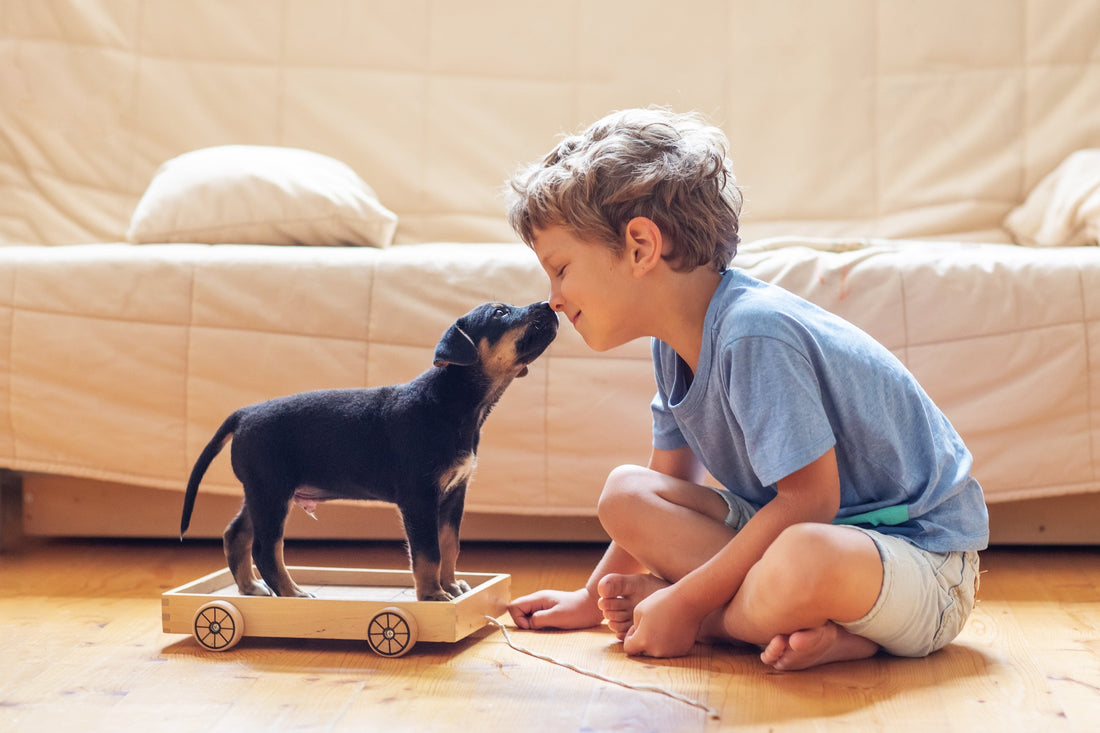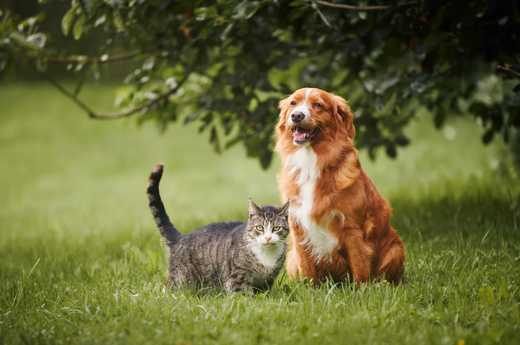Bringing a pet into your home can be a game-changer for your kids. Beyond the cuddles and playtime, pets teach kids valuable life lessons that will shape their character long into the future. Here, let’s explore how a four-legged friend can help your child grow into a compassionate, responsible, and emotionally well-rounded individual.
The Essential Role of Pets in Child Development
Developing Self-Control
Caring for a furry friend requires a consistent routine, from feeding them on time to taking them for regular walks. This is essentially like a real-life practice session for discipline and patience – both important life skills that will benefit them in all areas of their life.
Practising Patience
Training a puppy is not always easy, and there might be setbacks along the way. But that's all part of the experience! Your child will learn that good things take time and that patience and perseverance are essential things that will help them achieve their goals. This lesson is invaluable and can be applied to many areas of their lives, from homework to sports and everything in between.
Fostering Empathy and Understanding the Needs Of Others
Want your child to be a compassionate and understanding individual? A pet can be a powerful tool for developing empathy. By caring for a furry friend, kids learn to recognise and respond to their pet's needs, just like they would with a human friend. This emotional connection teaches them to care, nurture, and understand the feelings of another living being. It's a beautiful way to foster empathy and compassion that will benefit them throughout their lives.
What Are the Practical Benefits of Pet Ownership?
Beyond emotional growth, owning a pet also has practical benefits that contribute to a child's development. A major one is that caring for a pet involves numerous everyday responsibilities. From feeding them on time to keeping their fur clean and taking them for walks, kids learn that their actions have a direct impact on their furry friend's happiness. It's a great way to teach them the importance of taking care of others, understanding the consequences of their choices, and overall how to be more responsible.
Secondly, having a furry friend is a great conversation starter and it makes it much easier for kids to connect with others. Plus, activities like walking a dog in the park can lead to spontaneous meet-ups with other pet owners, giving your child plenty of opportunities to practise their social skills. It really is the perfect built-in icebreaker!
Learning How to Manage Life’s Many Challenges
While pet ownership is rewarding, it also comes with challenges that can teach valuable lessons. The first thing to bear in mind is that training a pet can be a real rollercoaster of emotions. There will be moments of frustration when your furry friend just doesn't seem to get it. But that's okay – these challenges can teach your child valuable lessons about managing their frustration. By staying calm, patient, and using problem-solving skills, they'll learn how to handle setbacks and keep a positive attitude.
A second unfortunate point is that unfortunately, pets do not live as long as humans. Dealing with the loss of a pet is never nice, although it can be an especially difficult but important experience for children. It helps them understand and cope with grief, providing an opportunity to discuss emotions and the cycle of life in a supportive environment.
How to Maximise Your Pet and Child Bond
To maximise the benefits of pet ownership, parents can follow these 5 simple, straightforward tips:
- Get the Kids Involved: Let your kids be a part of the pet-care team! From feeding and grooming to training, there are plenty of tasks they can handle.
- Stick to a Schedule: A consistent routine helps kids understand the importance of responsibility. Set regular feeding times, walk the dog daily, and create a cleaning schedule.
- Teach Kindness and Respect: Show your kids how to treat their pet with care and affection. A gentle touch and kind words can go a long way.
- Talk About Feelings: Use pet care as a chance to discuss emotions and empathy. It's a great way to teach your child about understanding and caring for others.
- Supervise and Guide: Keep a close eye on your kids and their pet interactions, especially if they're young or new to pet ownership. Offer guidance and support to ensure everyone's safety and happiness.
Fostering an Environment for Healthy Child Development
Pets are more than just playmates – they're teachers, companions, and emotional support systems for kids. They play a vital role in teaching children essential life lessons such as self-control, empathy, responsibility, and patience. By nurturing the bond between your child and their pet, you can maximise the potential benefits and help them develop into compassionate and emotionally intelligent individuals.
For more tips and high-quality, vet-approved products, visit our blog and explore our resources. Together, we can create a thriving environment for both your child and your pet! help your pets and children thrive.




